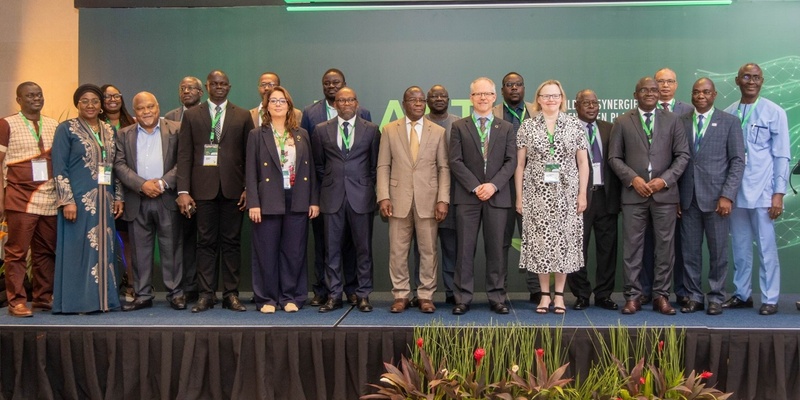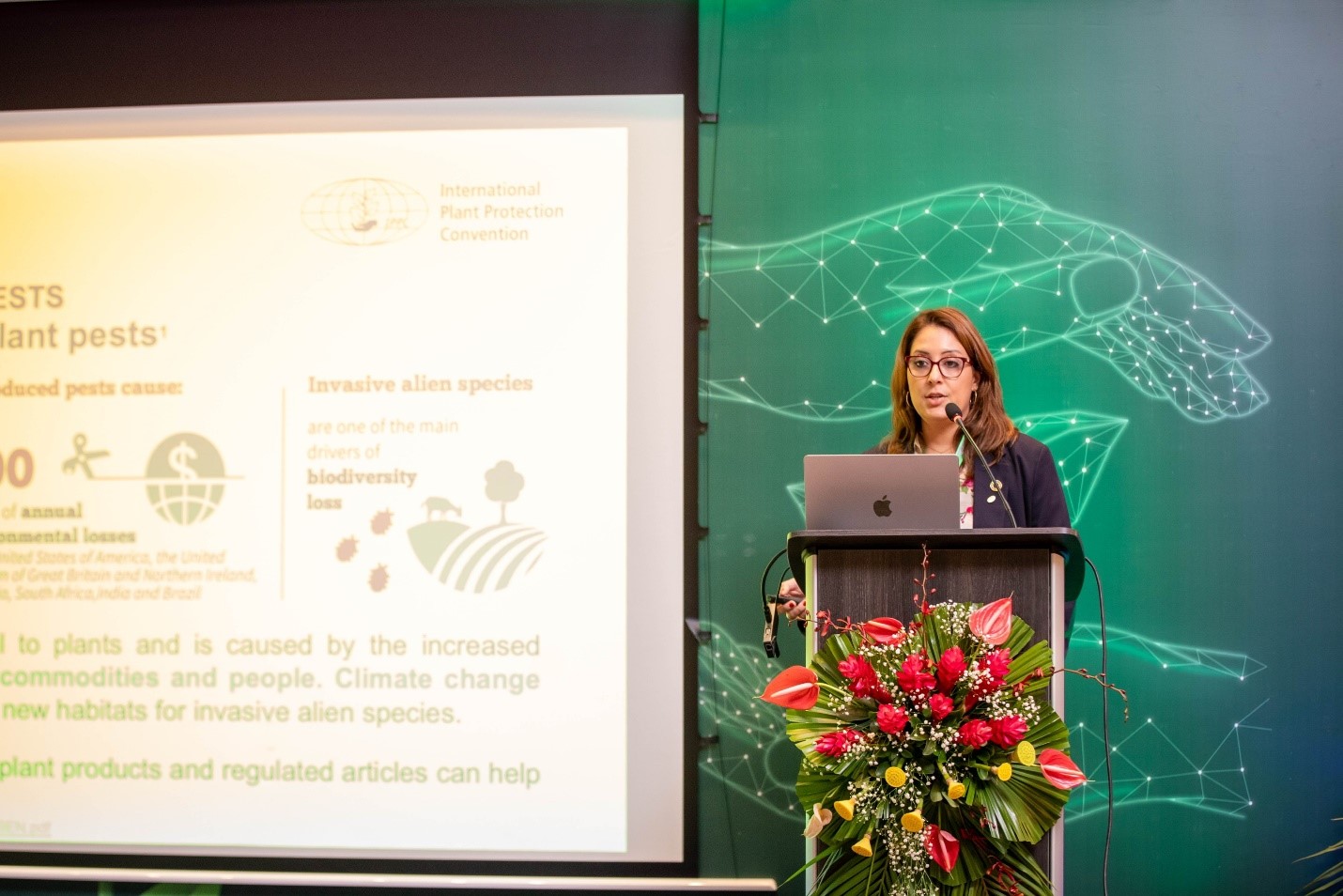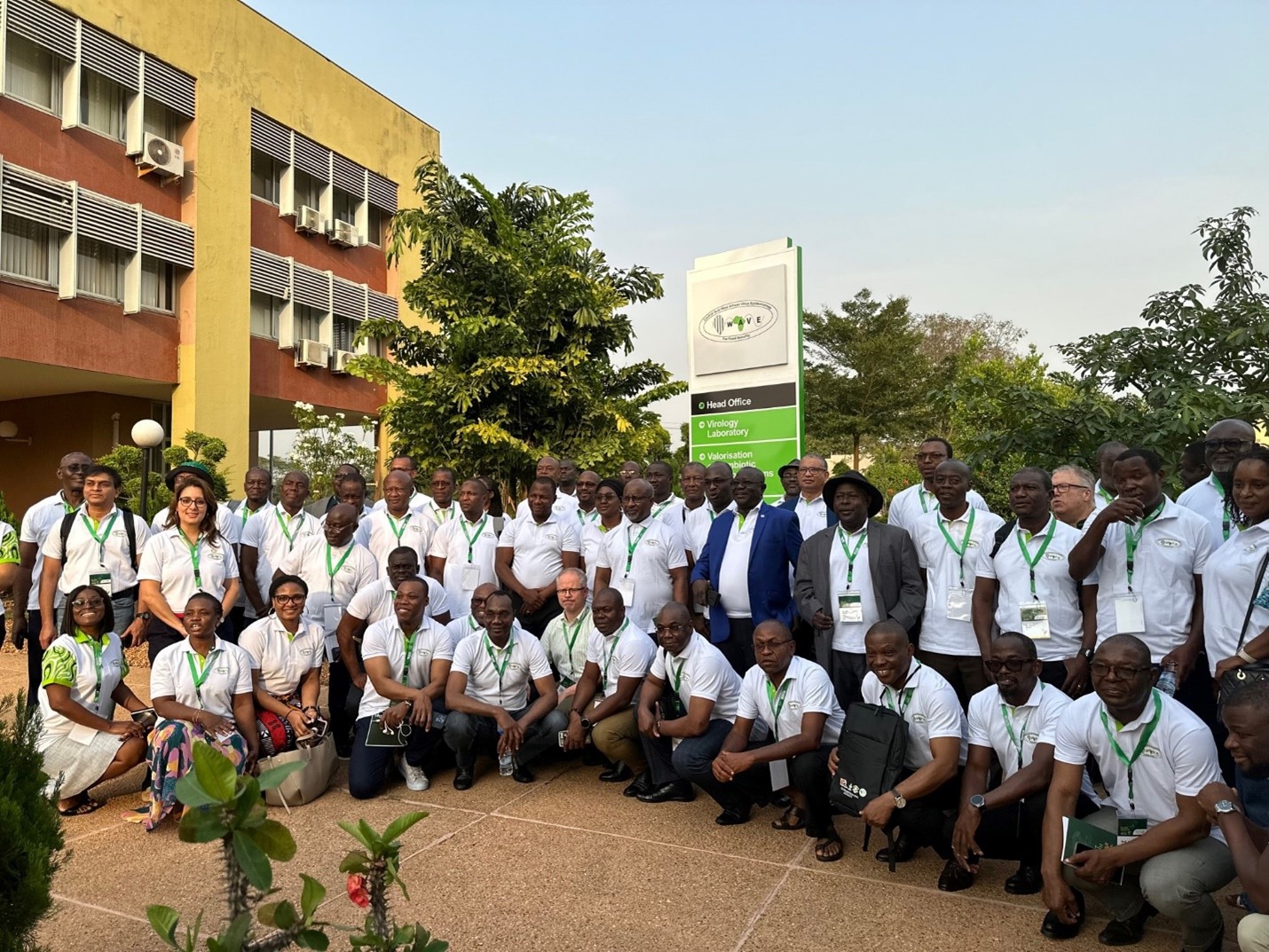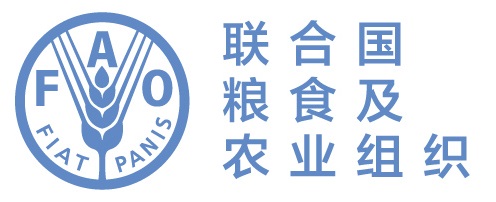IPPC participates in Plant Health Convening in Abidjan to strengthen plant health in Central and Western African
Posted on Mon, 17 Feb 2025, 09:24

Opening ceremony participants of the Plant Health Convening in Abidjan, Côte d’Ivoire. ©WAVE
Abidjan, 12 February 2025. The International Plant Protection Convention (IPPC) participated in the Plant Health Convening held in Abidjan, Côte d’Ivoire, on 4-5 February 2025. The event, coordinated by Central and West African Virus Epidemiology (WAVE), CABI, and The Permanent Interstate Committee for Drought Control in the Sahel (CILSS), brought together key stakeholders from across Central and West Africa to discuss strengthening plant health through a One Health approach.
The convening aimed to collectively review plant health activities in the region, identify existing competencies, and develop strategic pathways for collaboration. Around 70 participants attended the convening, including representatives from major research institutions in Western and Central Africa, regional organizations, and donor agencies such as the Foreign, Commonwealth and Development Office (UK).
During the two-day event, participants engaged in discussions to establish a collaborative framework for plant health in the region. The signing of Memorandums of Understanding (MoUs) and partnership agreements among key stakeholders marked a formal commitment to advancing plant health efforts through coordinated action. A major highlight of the event was the establishment of the Plant Health Alliance for Central and West Africa, research institutions led by WAVE, CABI, and CILSS to drive collaborative efforts to enhance plant health systems in the region. This initiative aligns with global efforts to integrate plant health within the One Health framework, ensuring a holistic approach to tackling emerging plant health challenges.
Representing the IPPC Secretariat, Adriana Moreira, Deputy Lead of the IPPC Standard Setting Unit, presented a keynote speech on "Plant Health in a One Health World", emphasizing the critical role of plant health in ensuring food security, environmental sustainability, and economic stability.
"This convening marks a big step towards integrating plant health within the broader One Health framework," said Moreira. "Collaboration at this level will enhance our ability to mitigate plant health threats and ensure sustainable agricultural development in Central and West Africa."
With the major attendance by research institutes, “it is now time to have solid bridges between the research, academia and the NPPOs in the region", she added.

Adriana Moreira, Deputy Lead of the IPPC Standards Setting Unit in Abidjan, Côte d’Ivoire. ©WAVE
Moreira also highlighted key statistics from the FAO and IPPC, noting that between 713 and 757 million people may have faced hunger in 2023, with one out of every five in Africa affected. She emphasized that plant pests can destroy up to 40 percent of agricultural crops annually, costing the world approximately USD 220 billion in global trade losses. "Plant health is key for One Health approaches, and IPPC plays a central role," she stated.
The IPPC Secretariat's participation reaffirmed its commitment to fostering global plant health partnerships and supporting regional initiatives that contribute to the sustainable management of plant pests and diseases. As the newly formed alliance progresses, the IPPC Secretariat remains dedicated to facilitating technical cooperation and knowledge exchange to strengthen plant health governance across Central and West Africa.

Participants of the Plant Health Convening in Abidjan, Côte d’Ivoire. ©WAVE

